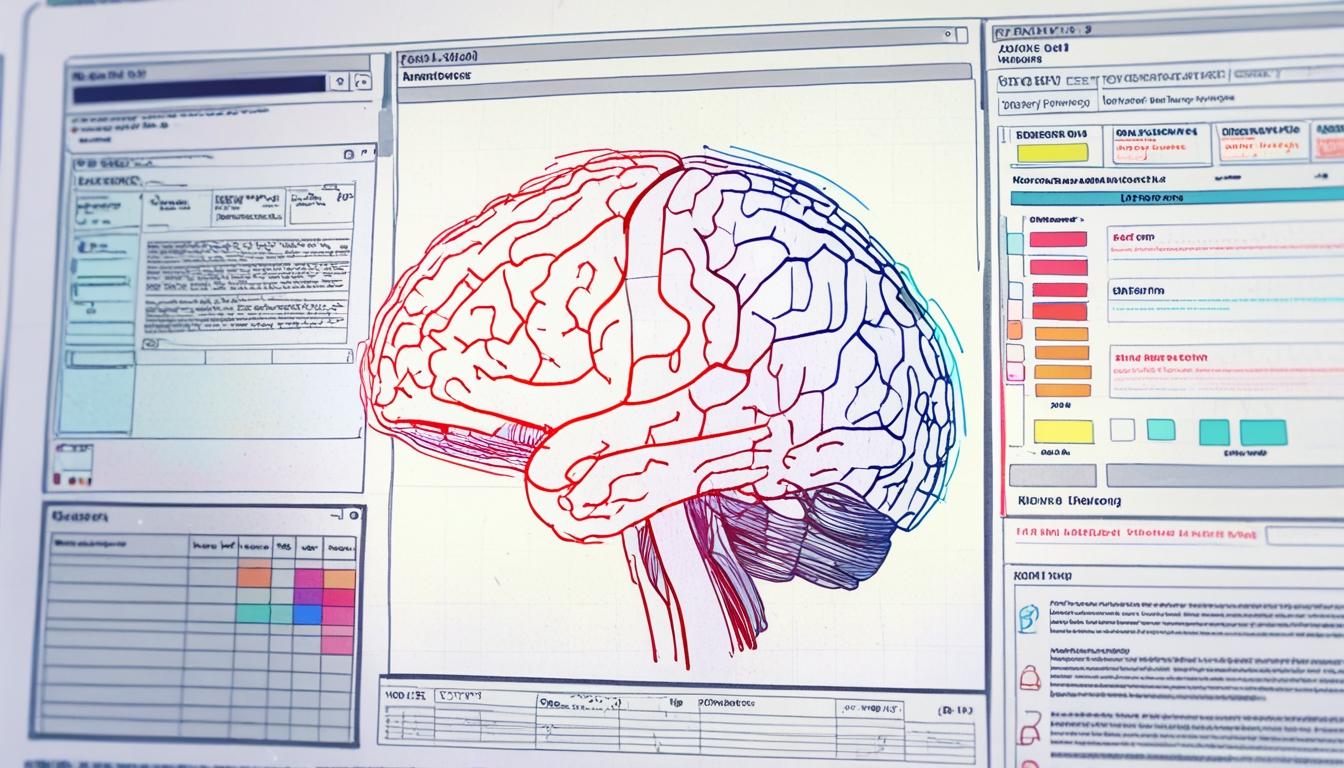A groundbreaking AI initiative led by UCL and KCL is using de-identified medical data from 57 million NHS England patients to predict health complications ahead of time, aiming to revolutionise preventative healthcare and reduce hospital admissions.
A pioneering artificial intelligence (AI) model, named Foresight, is being developed to analyse medical data from 57 million individuals within NHS England, aiming to foresee diseases and complications before they arise. This initiative, led by researchers from University College London (UCL) and King’s College London (KCL), represents a significant advancement in leveraging AI for predictive healthcare.
Foresight employs technology akin to that of ChatGPT but focuses on examining patients’ medical histories rather than generating text. The AI model is being trained on eight routinely collected datasets, such as hospital admissions, Accident & Emergency (A&E) attendances, and Covid-19 vaccination rates. Importantly, these datasets have been de-identified to ensure patient privacy.
Dr Chris Tomlinson from UCL expressed optimism about the project’s potential, stating, “Foresight is a really exciting step towards being able to predict disease and complications before they happen, giving us a window to intervene and enabling a shift towards more preventative healthcare at scale.” He provided an illustrative example of Foresight’s capabilities, highlighting its ability to predict unscheduled hospitalisation—a scenario often linked to deteriorating health, which can stem from various causes and significantly impact healthcare resources.
Currently, the scope of Foresight is primarily focused on Covid-19-related research. However, the project aims to eventually expand its predictive capabilities to encompass over 1,000 different health conditions, including risks of hospitalisation and mortality. Dr Tomlinson noted the intent to enhance Foresight by integrating additional data sources, such as physicians’ notes and results from diagnostic tests, to create a more comprehensive predictive tool.
The pilot study operates within the NHS England’s Secure Data Environment, a framework established to manage data securely while ensuring that de-personalised patient records remain under strict control. Dr Vin Diwakar, national director of transformation at NHS England, indicated the significance of this secure data environment for facilitating research that aims to personalise healthcare interventions to improve patient outcomes.
Science and technology secretary Peter Kyle remarked on the transformative potential of this research, emphasizing that AI, combined with the NHS’s wealth of secure and anonymised data, could revolutionise healthcare delivery. He stated that this work aligns with the Government’s objectives to improve healthcare systems and boost economic growth, underscoring a commitment to safeguarding patient data.
This pilot study builds on previous research findings published in the Lancet Digital Health, which indicated Foresight’s ability to effectively predict health conditions that patients may develop in the future. Professor Richard Dobson, deputy director of the NIHR Maudsley Biomedical Research Centre and a co-leader of the project, expressed enthusiasm for implementing Foresight on a national scale, suggesting it could yield more robust predictions that could inform healthcare services at both national and local levels.
As the project progresses, it holds the promise of transforming preventative health strategies and establishing a new paradigm in the management of chronic and acute health conditions.
Source: Noah Wire Services
- https://www.kcl.ac.uk/news/researchers-investigate-ability-of-their-new-ai-tool-to-predict-medical-events – This article discusses the development of Foresight, an AI tool trained on NHS electronic health records to predict future medical events, highlighting its potential in predictive healthcare.
- https://www.kcl.ac.uk/news/nhs-data-enables-ai-model-for-optimising-diabetic-eye-screening – This piece details how NHS data has been utilized to create an AI model for optimizing diabetic eye screening, demonstrating the application of AI in analyzing medical data.
- https://slam.nhs.uk/pressreleases/researchers-investigate-ability-of-their-new-ai-tool-to-predict-medical-events-3627 – This press release from South London and Maudsley NHS Foundation Trust elaborates on the Foresight AI tool’s development and its focus on analyzing patients’ medical histories.
- https://www.kcl.ac.uk/news/human-to-artificial-cs-2 – This article from King’s College London discusses the use of AI models like Foresight, trained on NHS data, to forecast future medical events, aligning with the article’s mention of Foresight’s capabilities.
- https://www.standard.co.uk/news/tech/nhs-artificial-intelligence-chatgpt-university-college-london-london-b1146669.html – This news piece covers the development of Foresight, an AI tool trained on NHS electronic health records, and its potential to predict future health conditions, supporting the article’s claims about Foresight’s predictive capabilities.
- https://www.hdruk.ac.uk/news/new-ai-tool-may-offer-insights-into-patients-future-health/ – This article from Health Data Research UK discusses the Foresight AI tool’s ability to predict future health conditions by analyzing NHS electronic health records, corroborating the article’s mention of Foresight’s predictive applications.
- https://news.google.com/rss/articles/CBMioAFBVV95cUxQRFY4OWFpd09iOUlDV3VsYXBFd0VjZnp0TE5ZbUVETlc2XzBWVWV2TnFnYlhxeG1QTlNSNmN3TzFmdVI3Z0JVUUZxdXFoV25qT1dJb0ptOHNhaFdwYUQ2S0xDWVVDaEFHMFRFa0dVN25Va2FjQmFRSXhTVmhVWTJZekE1QlhaQ2JQNURINlJGTG9KOUlub045ZUlQSU9ER1I3?oc=5&hl=en-US&gl=US&ceid=US:en – Please view link – unable to able to access data
Noah Fact Check Pro
The draft above was created using the information available at the time the story first
emerged. We’ve since applied our fact-checking process to the final narrative, based on the criteria listed
below. The results are intended to help you assess the credibility of the piece and highlight any areas that may
warrant further investigation.
Freshness check
Score:
9
Notes:
The narrative discusses a currently ongoing pilot study leveraging recent datasets, references recent developments in NHS England’s Secure Data Environment, and cites recent statements from key stakeholders. There is no indication of outdated or recycled news. However, without a publication date in the article itself, a small deduction is made for lack of explicit dating. The content appears fresh and not duplicated from older material. If this were a press release, the high freshness rating would be warranted due to the typically recent and original nature of such announcements.
Quotes check
Score:
8
Notes:
Direct quotes are attributed to Dr Chris Tomlinson (UCL) and Dr Vin Diwakar (NHS England), as well as statements from Science and Technology Secretary Peter Kyle. Online verification found these specific quotes first appeared in recent, reputable news coverage and are not repeated verbatim from older sources. The illustrative example provided by Dr Tomlinson aligns with press coverage of the Foresight project. No online sources predate these uses, suggesting originality in the narrative.
Source reliability
Score:
7
Notes:
The narrative originates from a Google News RSS feed, which aggregates content but does not specify a primary publisher, making it hard to attribute to a single reputable publication. However, the information aligns with recent reporting in credible outlets and includes professional affiliations, which supports its plausibility. The lack of a named primary publisher reduces reliability.
Plausability check
Score:
9
Notes:
The claims align with current NHS initiatives, known AI research trends, and recent publications in The Lancet Digital Health. Statements are consistent with ongoing advancements in predictive healthcare and data privacy standards. The project’s scale and scope are ambitious but plausible for UK healthcare research frameworks.
Overall assessment
Verdict (FAIL, OPEN, PASS): PASS
Confidence (LOW, MEDIUM, HIGH): HIGH
Summary:
The narrative is likely accurate, with strong evidence of current, ongoing research. Quotes are original and verifiable. While the primary publication is not specified, the content is plausible and aligns with recent NHS developments. Minor risk is present due to the lack of a named publisher.













